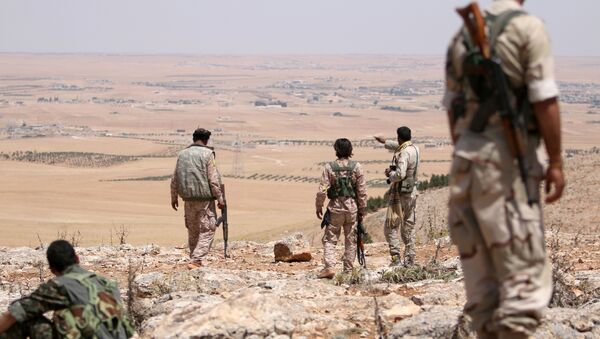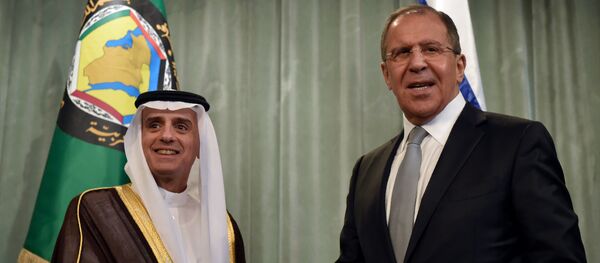“The fundamental differences between Moscow and Riyadh do not rule out a reconciliation between the two in the coming weeks, which would be critical for finding a political solution to the Syrian crisis,” Olivier d'Auzon, who is also an expert in Russian politics and the author of a book about Russian President Vladimir Putin, wrote in his article for the French edition of the US-based Huffington Post.
He also referred to a recent comment of Adel al-Jubeir, the Saudi foreign minister, when he stressed that Riyadh is looking to strengthen its relations with Moscow.
On the other hand, d'Auzon brought as an example the stalled Geneva talks on the Syrian issue and referred to the comments of Randa Kassis, representative of the Syrian secular opposition, who said that the absence of any results in Geneva should be attributed to the loss of the US influence on its regional allies.
“In fact, Washington is no longer able to dictate terms to its Saudi and Turkish allies. Only Moscow is able to force a gradual but radical change on this issue," the author quotes Randa Kassis as saying recently.
The author also notes that regardless of Barack Obama’s determination to separate the Ukrainian conflict issue and Iran’s nuclear issue from the developments in Syria, the US State Department “makes its utmost to obstruct any agreements with the Russians in Syria.”
Regardless all the anti-Russian sanctions, Russia is now in a strong position, the author says, after it strengthened its presence in Syria in September 2015.
And Washington is becoming aware that a convergence between Moscow and Riyadh is now “possible more than ever.”
However there is still a strong point of discord between Saudi Arabia and Moscow, the author notes. And that is the resignation of President Assad, which Riyadh vehemently insists on. The Saudis fear Tehran’s policy and its growing influence in the region.
In such a situation, he says, Moscow is able to find a balance between the Iranian’s and Saudi’s regional plans.
If the Russians provide Riyadh with sufficient guarantees, the whole situation might probably change. However, there is one more player able to break the balance – it is the Turkish President Erdogan and his “neo-Ottoman expansionism".




